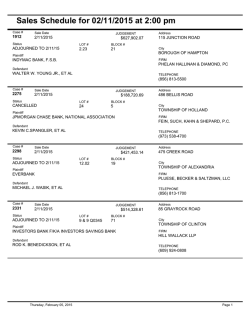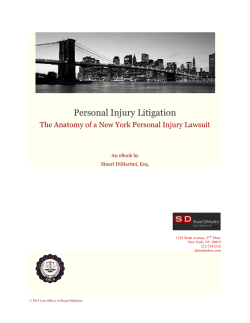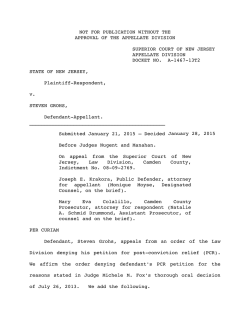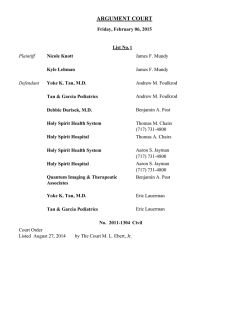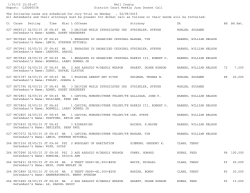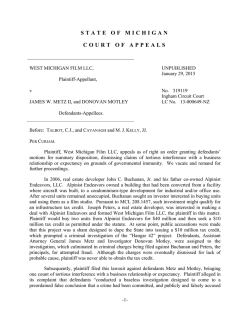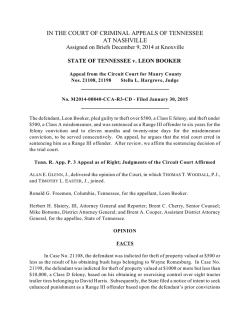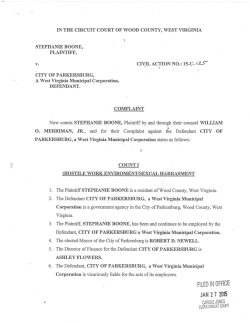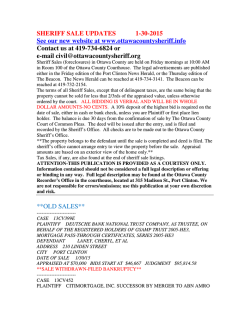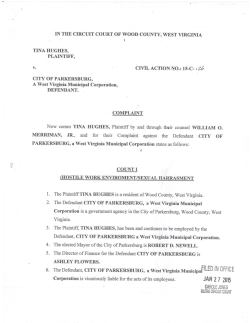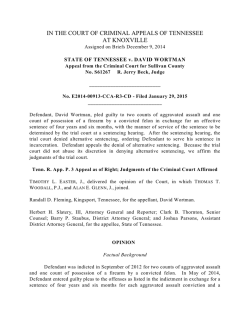
a-2368-12t4 kerry licciardi vs. marc licciardi
NOT FOR PUBLICATION WITHOUT THE
APPROVAL OF THE APPELLATE DIVISION
SUPERIOR COURT OF NEW JERSEY
APPELLATE DIVISION
DOCKET NO. A-2368-12T4
KERRY LICCIARDI,
Plaintiff-Appellant,
v.
MARC LICCIARDI,
Defendant-Respondent.
_____________________________________
Submitted January 15, 2014 – Decided January 29, 2015
Before Judges Waugh and Nugent.
On appeal from Superior Court of New Jersey,
Chancery
Division,
Family
Part,
Morris
County, Docket No. FM-14-552-06.
Kerry A. Licciardi, appellant pro se.
Respondent has not filed a brief.
The opinion of the court was delivered by
NUGENT, J.A.D.
Plaintiff Kerry Licciardi appeals from parts of a postdivorce
Family
Part
order
that
reduced
defendant
Marc
Licciardi's child support payments, increased his responsibility
to
pay
for
the
parties'
children's
extracurricular
and
extraordinary expenses, and denied plaintiff's motion to compel
defendant to produce documents.
affirm.
For the reasons that follow, we
After ten years of marriage during which two children were
born, the parties were divorced by a judgment that incorporated
their Property Settlement Agreement (PSA).
Defendant agreed in
the PSA to pay monthly child support of $3300 based on his gross
income of $175,000.
Plaintiff was unemployed but intended to
obtain a teaching certification.
The parties acknowledged in
the PSA that defendant was paying child support in excess of the
Child Support Guidelines found in Rule 5:6A (the guidelines).
Defendant
also
agreed
not
to
seek
a
reduction
in
his
child
support obligation "for three years regardless of any change of
circumstance . . . ."
The PSA provided that "child support may
be reviewed at the expiration of three years . . . and every two
years thereafter until both children are emancipated."
In March 2010, defendant filed a motion to reduce his child
support, which the court granted, decreasing his monthly child
support payments from $3300 to $2107.43.
That amount again
exceeded the amount provided for in the guidelines.
The court
explained its reasons for making the upward adjustment from the
guideline
amount,
including
the
disparity
in
the
parties'
standard of living, income, and respective earning abilities.
The court's finding that defendant's salary had decreased was
based on its averaging the parties' salaries over a three-year
period
from
2007
through
2009.
Defendant's
$148,713.33 and plaintiff's average was $32,340.66.
2
average
was
Under that
A-2368-12T4
analysis,
defendant's
average
income
had
decreased
by
approximately $26,000 from what he was earning when the parties
entered into the PSA.
In one of the years included in the
average, 2008, defendant had earned $245,496.
When defendant applied for and received his first child
support reduction, he had remarried and he and his second wife
had a two-year-old child.
in
its
statement
of
The court did not refer to that child
reasons
for
reducing
defendant's
child
support.
In September 2012, two and one-half years after receiving
his first support reduction, defendant filed a motion seeking a
further reduction.
certification
in
In support of his motion, defendant filed a
which
he
averred
that
since
the
previous
reduction he, and his second wife had divorced and he was now
paying $500 in monthly child support for their child.
certified
that
since
the
last
order
had
been
He also
entered,
his
employer "was legally able to deduct from [his paycheck] . . .
less than the Ordered amount[,]" and in order for him to stay
current with his obligations, he had to take a loan against his
401K.
He claimed he had no further ability to borrow money
because he had maximized his loan against his 401K, and his
credit rating was very low because his house had "slip[ped]
[into] foreclosure due to the very small amount of money [he]
actually take[s] home from [his] paycheck."
3
Because he had
A-2368-12T4
previously
averaged
his
income
over
three
years,
defendant
supported his motion with his income tax returns and W2's for
2009, 2010 and 2011, and he included a year-to-date statement of
his income for 2012.
Plaintiff filed an opposing certification and cross-motion
seeking
an
upward
directing
adjustment
defendant
extracurricular
compelling
to
and
in
pay
child
100%
extraordinary
defendant
to
produce
support;
of
the
expenses;
various
and
financial
records for the years 2010 through present.
an
order
children's
an
order
and
other
In support of her
motion, plaintiff certified that her own circumstances had taken
a downward turn.
the
added
coverage.
She had lost her teaching job, and she now had
expense
of
$345
per
month
for
reduced
medical
She had withdrawn money from her retirement account
and had substantially increased her credit card debt.
In opposing defendant's motion, plaintiff asserted, among
other things, that defendant had not complied with Rule 5:54(a);
had
provided
"incomplete,
inaccurate
and
internally
inconsistent" documentation; and had not "established a baseline
against
which
viewed."
deficiencies
case
his
She
in
information
current
gave,
financial
among
defendant's
statement
others,
motion:
(CIS)
situation
these
examples
defendant
listing
his
[could]
had
of
be
the
attached
previous
a
year's
gross income as $75,486, but his 2011 federal income tax return
4
A-2368-12T4
showed gross income of $155,242; defendant's projected yearly
income for 2012 was approximately $140,000, but that did not
take into account defendant's year-end bonuses or commissions;
and defendant reported $2000 in monthly rental income for his
two
rental
properties,
but
reported
$3000
in
monthly
rental
income on his 2011 federal tax return.
Plaintiff
also
asserted
that
defendant
was
sheltering
income by purchasing stock options offered by his employer.
certified
that
since
defendant's
March
2010
child
She
support
reduction, he had taken an eight-day trip to Mexico, an eightday trip to Disney World, a business trip to Orlando, another
trip to Orlando with the parties' children, and he had invited
their children to go with him to Cancun.
foregoing
and
other
defendant
should
pay
considerations,
all
of
their
Lastly, based on the
plaintiff
children's
claimed
that
extracurricular
expenses.
Defendant filed a reply certification in which he disputed
much
of
what
plaintiff
had
asserted.
He
explained
the
discrepancies between his CIS and his tax returns based upon his
interpretation
of
the
CIS
instructions
and
the
difference
between gross earned income and gross taxable income.
He also
explained that his year-to-date income included a 2011 year-end
bonus that was not paid until 2012.
He averred that any stock
he received from his employer as income reported on his paystub
5
A-2368-12T4
was
taxable,
and
immediately.
that
he
had
to
pay
taxes
on
that
stock
Defendant claimed he had a studio apartment above
his garage for which he received $3000 in rental income and he
once had a short-term renter in a previous marital property.
As previously noted, the court reduced defendant's child
support payments, denied without prejudice plaintiff's motion to
compel defendant to produce documents, and increased defendant's
obligation
to
pay
the
children's
extracurricular
and
extraordinary expenses.
The court found that the parties had
established
and
substantial
permanent
changed
circumstances
based on defendant paying monthly child support for his third
child
following
his
divorce
from
his
second
wife,
plaintiff
losing her job, and a new parenting time schedule created by the
parties
which
significantly
reduced
the
number
of
overnights
enjoyed by defendant.
The court further explained that plaintiff's adjusted gross
taxable income for child support purposes was calculated based
on
her
weekly
unemployment
compensation
of
$611
and
that
"[t]axable interest and dividends and taxable retirement plan
distributions
return."
were
taken
from
[p]laintiff's
2011
federal
tax
According to the court, defendant's adjusted gross
taxable income for child support purposes was calculated based
on his year-to-date earnings of $107,310.26, which calculated to
a weekly amount of $2683; in addition to which defendant had
6
A-2368-12T4
received $2000 in year-to-date rental income on his CIS.
The
court noted that "[i]nterest and dividend income and income tax
credits or rebates were averaged over three . . . years based on
his 2009-2011 federal tax returns."
Acknowledging that plaintiff objected to the accuracy of
defendant's CIS, the court ruled that "she [had] not provide[d]
persuasive proof that [d]efendant [had] committed tax fraud or
that his [] tax returns should be disregarded."
The court also
noted
stocks
that
the
guidelines
"expressly
exclude
from
a
party's gross income, 'unless the court finds that the intent of
the investment was to avoid the payment of child support.'"
The court concluded that "[s]ince [d]efendant's total earnings,
before any pre- or after-tax deductions were taken, were used in
determining [his] weekly income, it is not relevant what his
intent is with regard to the stocks."
Based
on
its
calculation
of
the
parties
gross
taxable
income for child support purposes, its rejection of plaintiff's
arguments
about
disregarded,
defendant's
and
why
its
intention
defendant's
ruling
with
tax
concerning
respect
to
return
the
his
should
irrelevancy
stocks,
modified his child support to $346 per week.
the
be
of
court
The court also
ordered that defendant pay $35 per week toward arrears.
As to plaintiff's motion to compel documents, the court
ruled that "[a]lthough [p]laintiff establishe[d] inconsistencies
7
A-2368-12T4
in [d]efendant's current submissions and prior submissions, she
fail[ed]
to
establish
especially
as
reduce[d]
income."
the
[d]efendant's
For
relevance
tax
that
returns
reason,
of
these
indicate
the
documents
losses
court
that
denied
plaintiff's request.
Lastly, because the court had determined that the parties'
proportionate incomes had changed since they executed the PSA,
and because the proportions of their incomes were 74.47 percent
defendant
and
25.53
percent
plaintiff
according
to
the
guidelines, the court ordered that defendant be responsible for
seventy-five
percent
of
the
children's
extracurricular
and
extraordinary expenses.
Plaintiff appeals from the order implementing the court's
decision.
Defendant has not filed an opposing brief.
Courts are authorized by statute to "revise[] and alter[]"
child support orders "from time to time as circumstances may
require."
N.J.S.A.
2A:34-23.
"The
party
moving
for
the
modification bears the burden of making a prima facie showing of
changed circumstances."
Miller v. Miller, 160 N.J. 408, 420
(1999)
v.
(1980)).
of
(citing
Lepis
Lepis,
83
N.J.
139,
157-59
Changed circumstances "include an increase in the cost
living,
an
increase
or
decrease
in
the
income
of
the
supporting or supported spouse, cohabitation of the dependent
spouse, illness or disability arising after the entry of the
8
A-2368-12T4
judgment, and changes in federal tax law."
J.B. v. W.B., 215
N.J. 305, 327 (2013) (citing Lepis, supra, 83 N.J. at 151).
If the party seeking the modification of a support order
makes a prima facie showing of changed circumstances, "a court
may
order
discovery
and
hold
a
hearing
supporting spouse's ability to pay."
420
(citing
Lepis,
supra,
83
to
determine
the
Miller, supra, 160 N.J. at
N.J.
at
157-59).
"As
is
particularly the case in matters that arise in the Family Part,
a
plenary
hearing
is
only
required
if
material and legitimate factual dispute."
there
is
a
genuine,
Segal v. Lynch, 211
N.J. 230, 264-65 (2012); accord, Lepis, supra, 83 N.J. at 159
("a party must clearly demonstrate the existence of a genuine
issue as to a material fact before a hearing is necessary").
Whether a child support obligation should be modified based
on
changed
circumstances
is
a
decision
that
rests
within
a
Family Part judge's sound discretion.
See Larbig v. Larbig, 384
N.J. Super. 17, 21 (App. Div. 2006).
Each case "'rests upon its
own particular footing and the appellate court must give due
recognition to the wide discretion which our law rightly affords
to
the
trial
judges
who
deal
with
these
matters.'"
Ibid.
(quoting Martindell v. Martindell, 21 N.J. 341, 355 (1956)).
We
will
it
is
contrary
to
of
or
not
disturb
a
trial
manifestly
unreasonable,
reason
to
or
other
court's
arbitrary,
evidence,
9
or
decision
"'unless
or
clearly
the
result
whim
A-2368-12T4
caprice.'"
Jacoby v. Jacoby, 427 N.J. Super. 109, 116 (App.
Div. 2012) (quoting Foust v. Glaser, 340 N.J. Super. 312, 315-16
(App. Div. 2001)).
If
the
changed
court
determines
circumstances
that
that
a
warrants
party
a
has
demonstrated
modification
of
child
support, "[t]he guidelines set forth in Appendix IX of . . .
shall be applied . . . ."
R. 5:6A.
The guidelines "include a
mechanism to apportion a parent's income to all of his or her
legal dependents regardless of the timing of their birth or
family association (i.e., if a divorced parent remarries and has
children, that parent's income should be shared by all children
born to that parent)."
Child Support Guidelines, Pressler &
Verniero, Current N.J. Court Rules, Appendix IX-A on R. 5:6A at
2633 (2015).
good cause.
With
A court may modify or disregard the guidelines for
R. 5:6A.
those
principles
contentions on appeal.
argues
that
guidelines
the
and
trial
failed
in
mind,
we
address
plaintiff's
In her first two arguments, plaintiff
court
to
failed
make
to
proper
properly
utilize
findings
of
the
fact
or
conclusions of law in ordering a reduction of child support.
In
her second argument, plaintiff asserts: "The lower court failed
to
apply
the
support
guidelines."
We
cannot
evaluate
that
argument without the child support worksheet prepared by the
court.
Because plaintiff has not provided the worksheet with
10
A-2368-12T4
the record on appeal, we reject her arguments that the judge
either did not use the guidelines or improperly calculated child
support under the guidelines.
Rule
5:6A
requires
that
a
"Child
Support
Guidelines
worksheet" be filed with any order or judgment that includes
child support.
Here, the order challenged by plaintiff states
explicitly that it is being entered "for the reasons set forth
in
the
attached
Statement
Guidelines worksheet[.]"
included
meaningful
in
the
Reasons
and
Child
Support
The worksheet has not, however, been
appellate
appellate
of
record.
review.
R.
It
is
necessary
2:6-1(a)(1).
for
Although
plaintiff is self-represented, she is held to the same standard
for compliance with our court rules as a litigant represented by
counsel.
Rubin v. Rubin, 188 N.J. Super. 155, 159 (App. Div.
1982).
Plaintiff argues that the court did not relate its finding
of fact to the guidelines.
But we cannot, for example, compare
the court's computation of the parties' incomes – as set forth
in its statements of reasons accompanying the order – with the
computations on the worksheet.
In short, we cannot analyze
plaintiff's arguments because she did not include in the record
the necessary documents.
Plaintiff cites as an example of the court's failure to
give adequate reasons for its opinion the court's decision to
11
A-2368-12T4
allocate
responsibility
expenses
seventy-five
percent to plaintiff.
for
the
percent
to
children's
defendant
extraordinary
and
twenty-five
But the court stated in its decision that
it was doing so based upon the parties' proportionate incomes.
As noted, without the Child Support Guidelines worksheet, we
cannot assess the accuracy of the court's computation of these
incomes.
Plaintiff next contends that defendant was not entitled to
a
reduction
incomplete
in
and
child
support
deceitful,
and
because
his
therefore
disclosures
the
court
could
were
not
properly determine whether or not there was a substantial and
permanent change in the parties' circumstances.
argument for two reasons.
We reject that
First, plaintiff's assertions about
defendant's fraudulent statements were simply bare assertions
buttressed
by
rhetorical
questions,
but
persuasive, competent, documentary evidence.
found.
unsupported
by
any
The trial court so
Its finding was amply supported by the record.
More importantly, plaintiff herself asserted that there had
been a change in circumstances requiring modification of child
support.
It is difficult to discern her argument that the judge
erred by determining that circumstances had changed when she
herself asserted precisely that position in her cross-motion.
Cf. Spring Creek Holding Co. v. Shinnihon U.S.A. Co., 399 N.J.
Super. 158, 177 (App. Div.) ("[t]he filing of a cross-motion for
12
A-2368-12T4
summary
judgment
generally
limits
the
ability
of
the
losing
party to argue that an issue raises questions of fact, because
the act of filing the cross-motion represents to the court the
ripeness of the party's right to prevail as a matter of law"),
certif. denied, 196 N.J. 85 (2008).
Plaintiff's
remaining
arguments
are
without
sufficient
merit to warrant extended discussion in a written opinion.
2:11-3(e)(1)(E).
We add only these comments.
R.
Plaintiff argues
the court should not have considered the birth of a third child
as a change in circumstance warranting a modification of child
support
because
defendant
the
court
previously
moved
had
for
considered
a
child
that
fact
support
when
reduction.
However, defendant and his second wife had not divorced at the
time
the
court
reduction.
granted
defendant
his
first
child
support
Here, the court properly considered that since the
previous order, defendant was paying $500 per month for his
third child.
Plaintiff
also
discovery
to
prove
income.
Because
argues,
that
her
in
essence,
defendant
assertion
had
that
she
fraudulently
concerning
fraud
needed
concealed
was
either
unsupported by evidence or based on rhetorical questions, we
conclude the trial court did not abuse its discretion when it
decided not to conduct a hearing.
13
A-2368-12T4
We note that the court denied without prejudice plaintiff's
cross-motion to compel defendant to produce documents.
In view
of the statement in the court's opinion that plaintiff had not
provided persuasive proof defendant had committed tax fraud or
that his federal tax return should be disregarded, we find no
abuse of discretion.
grant
plaintiff
We presume that the court will likely
discovery
in
the
event
of
a
subsequent
application for a modification of child support.
Affirmed.
14
A-2368-12T4
© Copyright 2026
